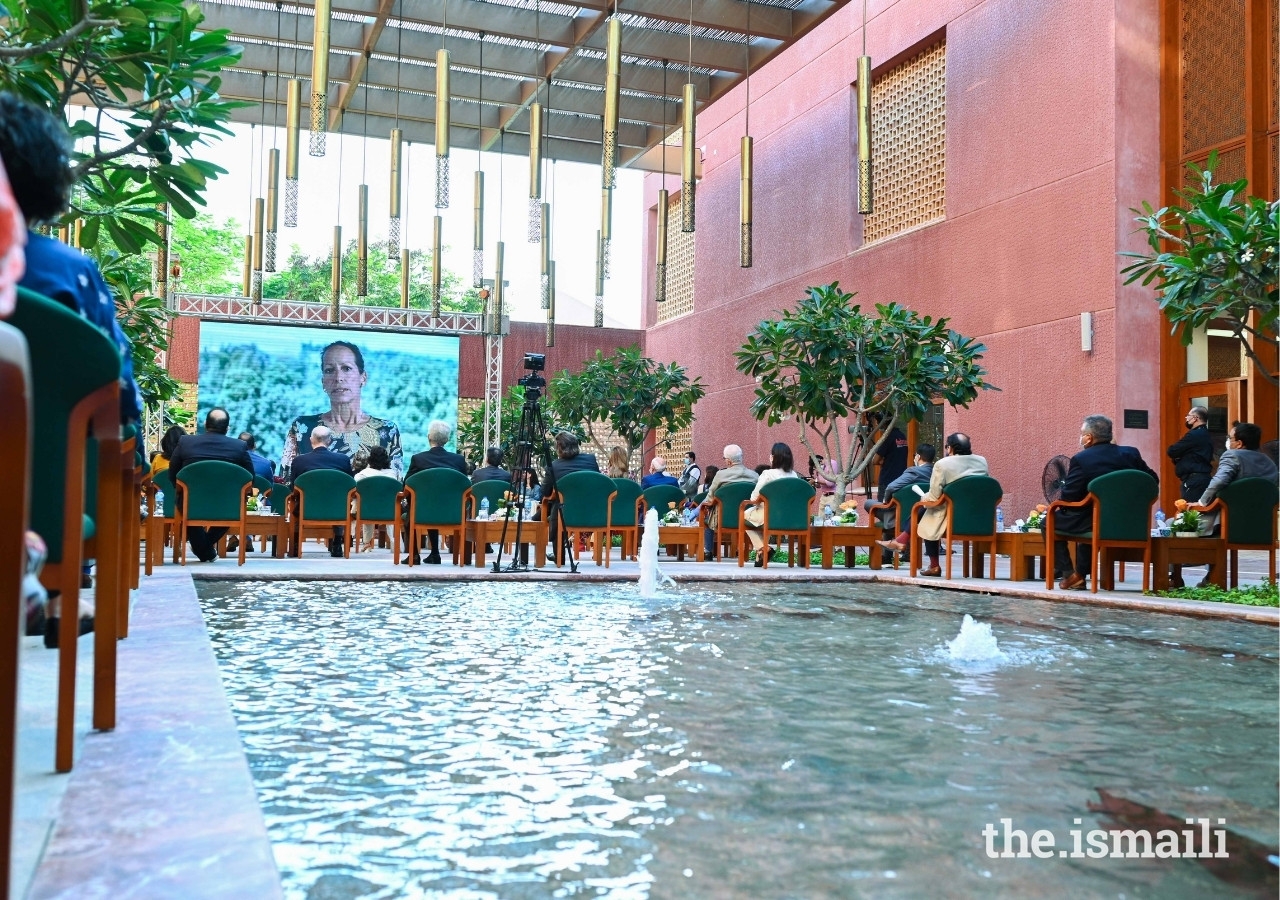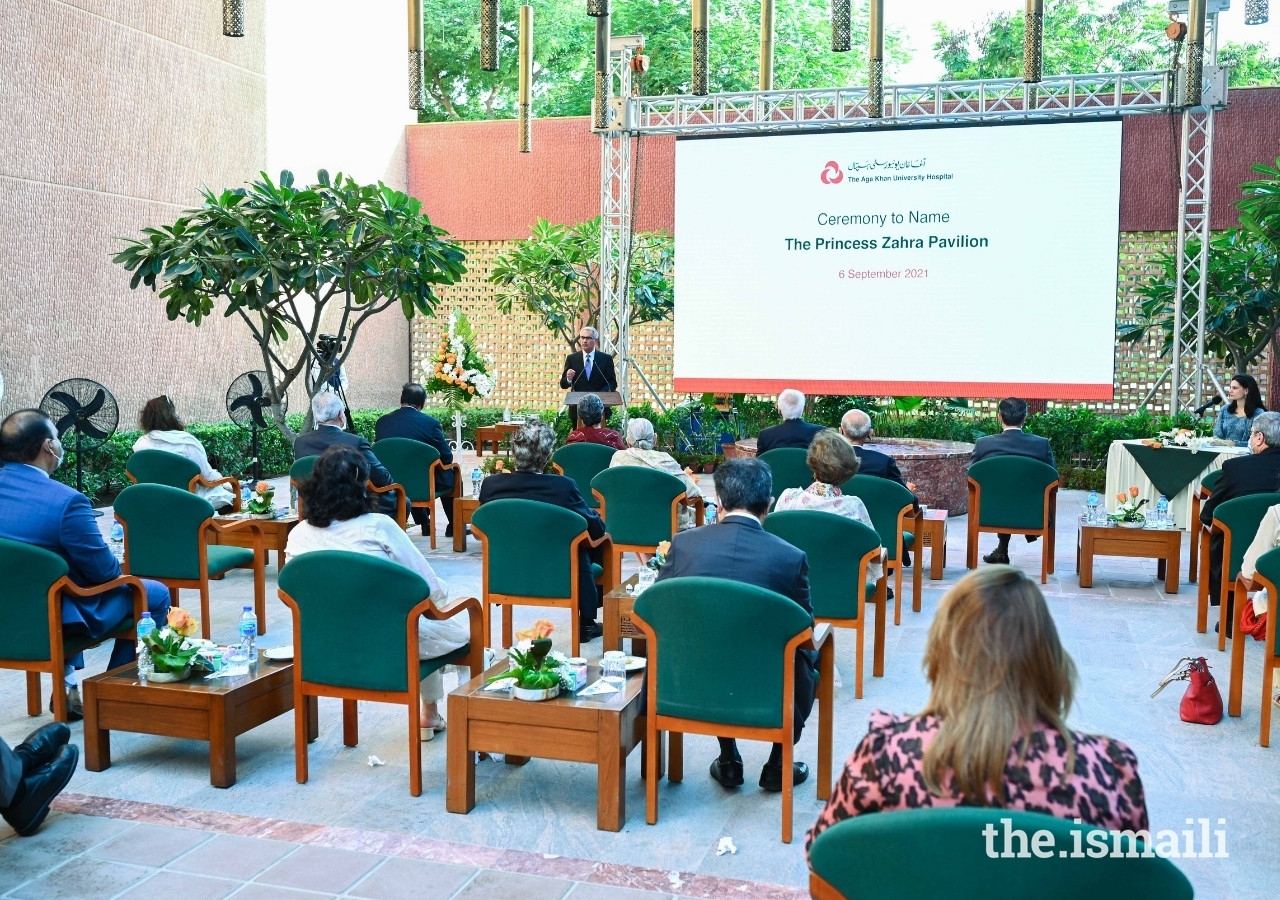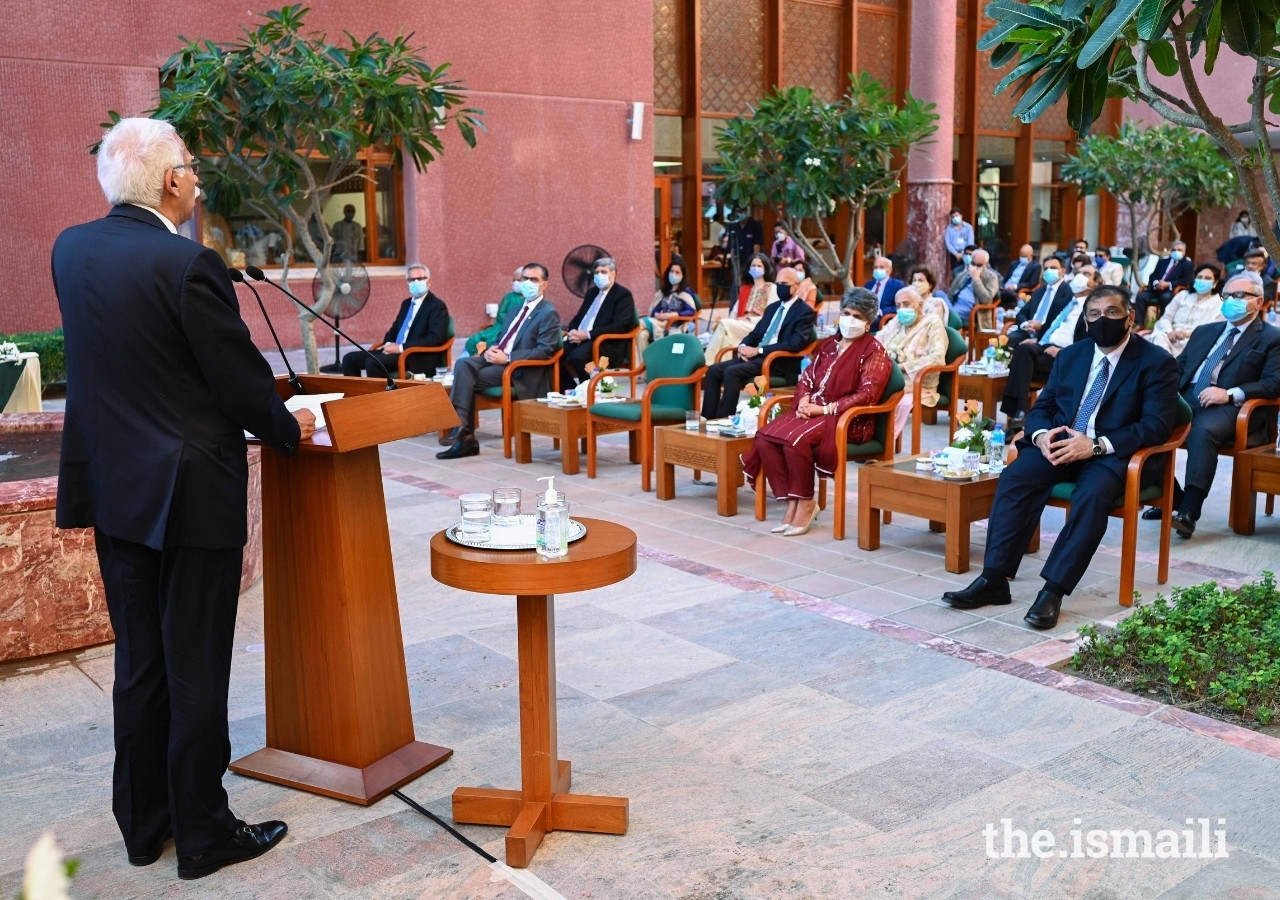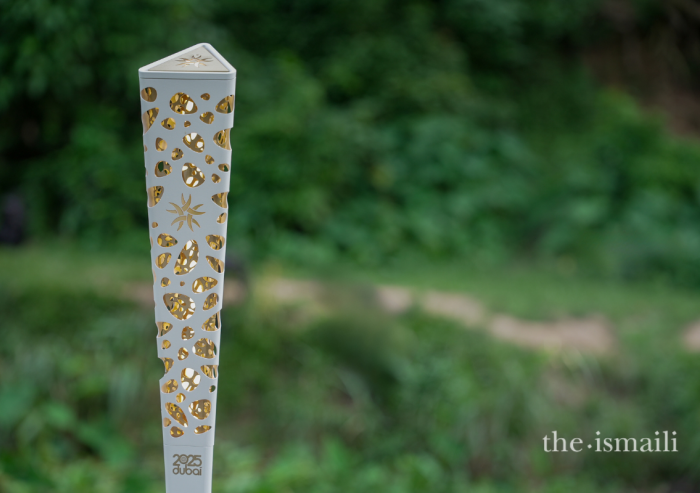In his remarks, President Firoz Rasul welcomed guests to the event, and shared the Aga Khan University (AKU)’s vision behind the design and construction of the New Private Wing at the Hospital in Karachi.
“This is the result of a globe-spanning collaborative effort to reimagine what an inpatient hospital facility can be,” he said. “It is both a venue for the delivery of world-class care and a welcoming oasis of comfort and beauty for patients and their family members.”
Due to rapid progress in medical technology and best practice, it became clear that a new building would be required to replace the existing one, which had served patients well for more than 30 years.
The new facility has been designed to provide peace and tranquillity to patients as they recuperate from clinical procedures. Inspired by Islamic Art and Culture, the architecture and landscaping have been carefully crafted to create a calming environment that contributes to patients’ healing process and early recovery. The complex houses 85 rooms, including private rooms, suites, special care rooms and isolation rooms, in addition to family lounges, a dining court, roof terraces, and more.
President Rasul also paid tribute to Princess Zahra’s contributions to international development and health projects over the course of many years, saying that “countless people have benefited from her knowledge, her wisdom and her dedication to serving those in need.”
“In naming the New Private Wing the Princess Zahra Pavilion, we recognise the tremendous impact that Princess Zahra has had, and continues to have here in Pakistan and across the world,” he continued.
“It is an honour for me that this building should bear my name as does the original pavilion, which was constructed over 20 years ago in Nairobi,” said chief guest Princess Zahra, who is also a member of AKU’s Board of Trustees.
She went on to describe the importance of the pavilion to the wider objectives of AKUH, especially in offering care and financial assistance to underprivileged individuals through the hospital’s patient welfare programme.
“The pavilion is an important source of revenue for the hospital, and thus it is an important contribution in our ability to serve the disadvantaged segment of the population,” Princess Zahra said.
One out of every ten patients at the hospital earns less than two dollars per day. Yet, all patients, regardless of means, are treated by the very same surgeons and medical staff in the same operating rooms and facilities.
Similar to the pavilion in Nairobi, the new one in Karachi offers an international-standard of care, and a high level of comfort and service to patients and their families.
“The entire team responsible for its design and construction deserve congratulations. And every single person responsible for its day to day operations should be proud to work here,” said Princess Zahra. “As a result of all their efforts, Pakistanis no longer need to leave their country or their families or to bear the expense and anxiety associated with doing so in order to access such care.”
Her comments were echoed by Dr Shahid Shafi, CEO of the Aga Khan University Hospital, Karachi. Dr Shafi, who himself graduated from AKU’s medical college almost 40 years ago, has seen the institution grow over the course of decades, in terms of its patient bed numbers, the physical footprint of its various buildings, and its expansion to other countries.
“During this time, AKU has trained thousands of doctors, nurses, allied health professionals and hospital managers who are now serving all over Pakistan and of course elsewhere in the world as well,” he said, highlighting that an investment in physical infrastructure is also an investment in people.
“We take a special pride in empowering women,” continued Dr Shafi. “Especially women from low and middle-income families who have been able to lift themselves and their families up out of poverty, through the education they received right here on this campus.”
Along with the Princess Zahra Pavilion, this empowerment and education effort is part of a broader endeavour by AKU to improve healthcare provision in various parts of the developing world.
Like many other countries, Pakistan has been adversely affected by the rampant spread of Covid-19 among its population. Yet, the Aga Khan University health system has served as a beacon of hope over the past 18 months, caring for sick patients, delivering vaccinations, and tracking the rise of new variants.
In a rapidly-changing world, this continuing endeavour stems from the long-standing values embedded at AKU and the wider Aga Khan Development Network — what Dr Shafi referred to as “an unwavering commitment to pursue excellence in everything that we do.”











